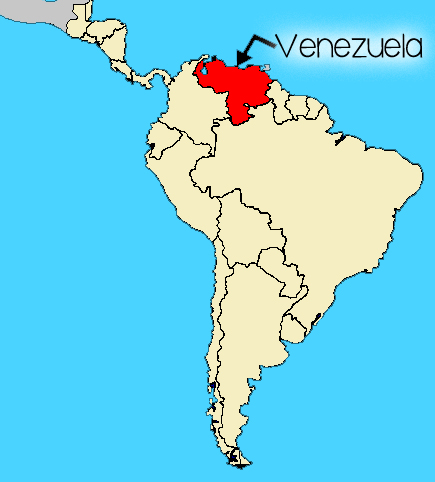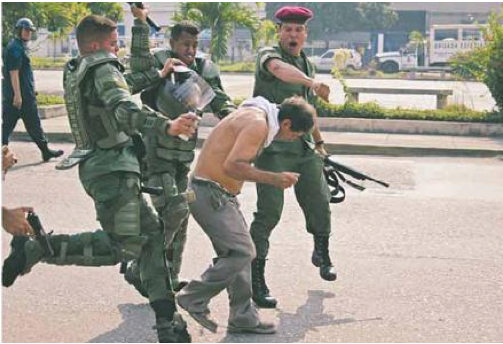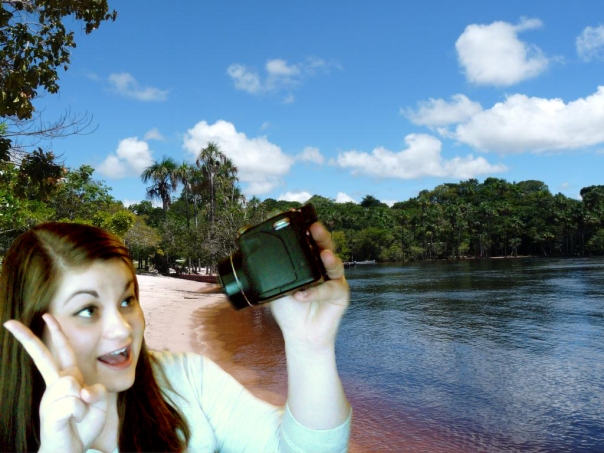Continent: South America
Capital: Caracas
Language: Spanish
Population: 28,946,101 (2011 census)
 History: Venezuela was colonized by Spain in 1522 despite resistance from indigenous peoples. It became one of the first Spanish American colonies to declare independence, but did not securely establish independence until 1821 (as a department of the federal republic of Gran Colombia, gaining full independence in 1830). During the 19th century Venezuela suffered political turmoil and dictatorship, and it was dominated by regional caudillos (military strongmen) well into the 20th century. The country has intermittently had democratic governments between 1945 and the present day; like most countries of Latin America, it has suffered some coups and military dictatorships. Economic shocks in the 1980s and 1990s led to a political crisis causing hundreds of deaths in the Caracazo riots of 1989, two attempted coups in 1992, and the impeachment of President Carlos Andres Perez or embezzlement of public funds in 1993. A collapse in confidence in the existing parties saw the 1998 election of former career officer Hugo Chávez, and the launch of the Bolivarian Revolution, beginning with a 1999 Constituent Assembly to write a new Constitution of Venezuela.
History: Venezuela was colonized by Spain in 1522 despite resistance from indigenous peoples. It became one of the first Spanish American colonies to declare independence, but did not securely establish independence until 1821 (as a department of the federal republic of Gran Colombia, gaining full independence in 1830). During the 19th century Venezuela suffered political turmoil and dictatorship, and it was dominated by regional caudillos (military strongmen) well into the 20th century. The country has intermittently had democratic governments between 1945 and the present day; like most countries of Latin America, it has suffered some coups and military dictatorships. Economic shocks in the 1980s and 1990s led to a political crisis causing hundreds of deaths in the Caracazo riots of 1989, two attempted coups in 1992, and the impeachment of President Carlos Andres Perez or embezzlement of public funds in 1993. A collapse in confidence in the existing parties saw the 1998 election of former career officer Hugo Chávez, and the launch of the Bolivarian Revolution, beginning with a 1999 Constituent Assembly to write a new Constitution of Venezuela.
In The News: With the recent death of former leader, Hugo Chávez, Venezuela has been in the news quite a bit lately. As a country turned to socialism, many of Venezuela’s natural resources haven’t been properly utilized. Rich in petroleum, natural gas, and more, the citizens of Venezuela can get gasoline for what we can equate to around 4 cents/gallon. However, the country is in a state of turmoil with the death of Hugo Chávez. Elections are held by voting, however, the country is experiencing a great amount of corruption as democracy is attempted.
 You can read more about the corruption of the political process going on, here.
You can read more about the corruption of the political process going on, here.
